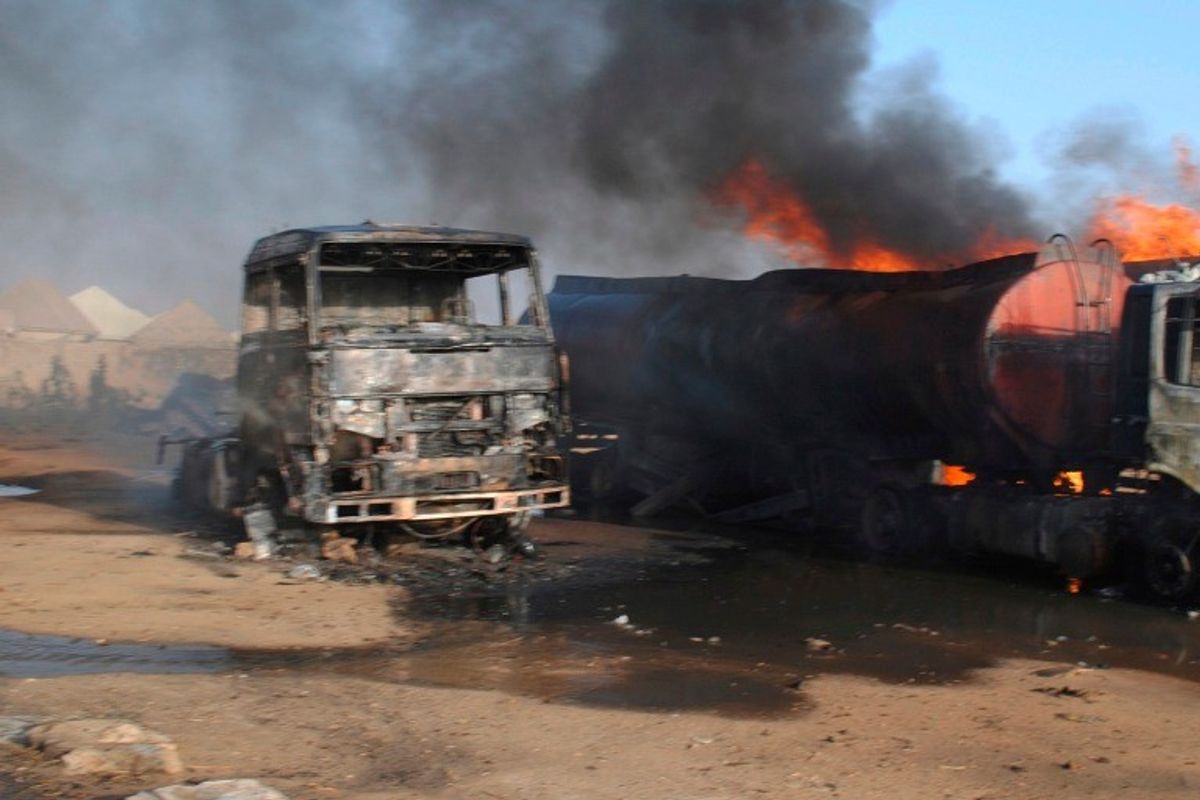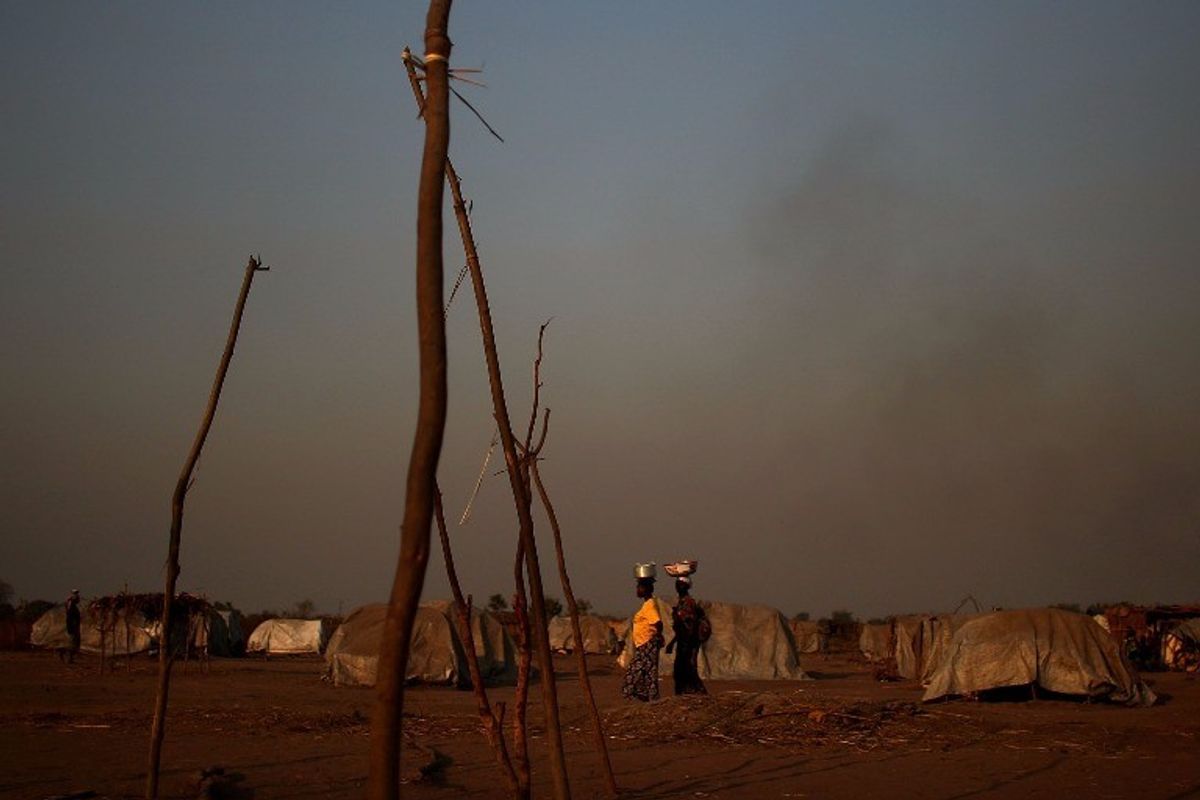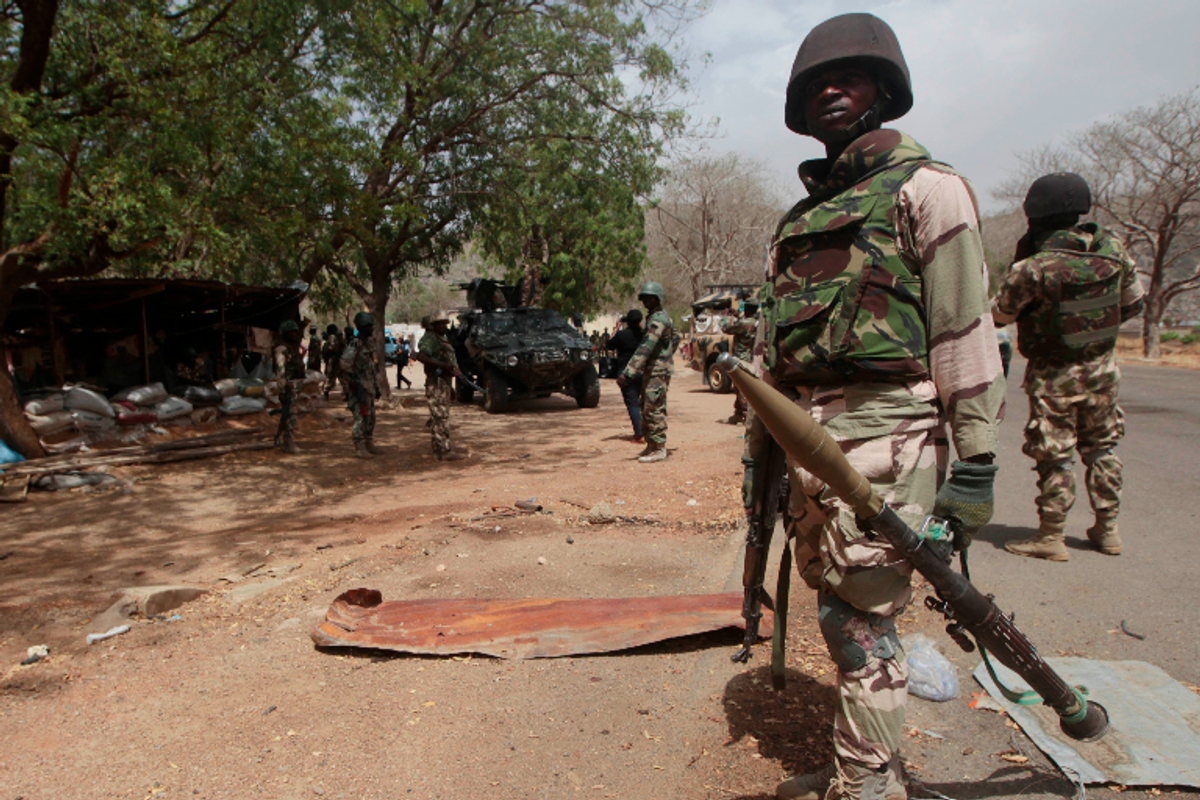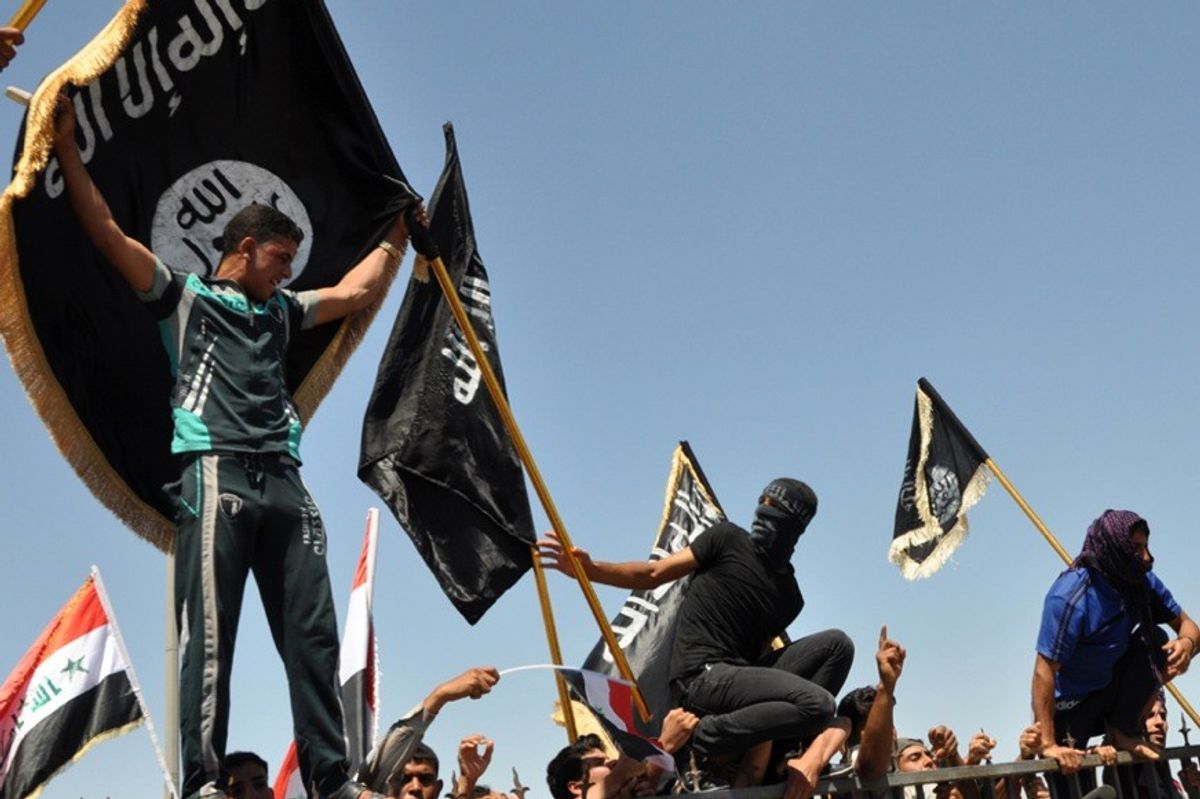While claims last week by a Nigerian army spokesman that Boko Haram leader Abubakar Shekau was “fatally wounded” in an August 19 airstrike should be taken with a dose of skepticism—the military has announced the elusive militant’s death on at least four prior occasions, only to have him reappear taunting them—there is no doubt that the Islamist insurgents have had a bad run of late. However, while the once-puissant group, affiliated since early 2015 with the so-called Islamic State, has lost almost all of the territory it once controlled in the northeastern part of the West African country and has been riven with factional disputes, it would be a mistake to forget its record of resilience or discount its continued threat potential.
Since the Nigerian armed forces, together with regional allies from Benin, Cameroon, Chad, and Niger, went on the offensive against the insurgents during the last months of the administration of President Goodluck Jonathan, Boko Haram has steadily lost the dominion it once held over sizable areas around the Lake Chad Basin. Ironically, Gwoza, the mid-sized town that was “capital” of the militants’ self-styled “emirate,” was liberated by government forces just one day before Jonathan lost his bid for another four-year term to retired Major-General Muhammadu Buhari, who had made the incumbent’s inability to end the insurgency the leading issue in his campaign, promising a quick and decisive campaign against Boko Haram. The appointment of new military commanders, the shift of command headquarters close to the battlefront, improved relations and cooperation with both neighboring countries and more distant allies, and the heightened tempo of operations all contributed to significant gains against the militants during the months following the inauguration of the new president in May 2015.
In response to the military defeats it has suffered, Boko Haram has shifted tactics, expanding its use of suicide bombings, most of which have targeted the civilian population. One such attack on a busy market in the northern Cameroonian town of Mora last week left three people dead and two dozen others wounded, bringing the death toll from such assaults in Cameroon to nearly 600 since the start of the year. Moreover, hounded from its erstwhile Nigerian strongholds, the militants have stepped up attacks in neighboring Niger’s eastern regions. An attack on a group of pastoralists earlier this month near Diffa, for example, left five dead. While Boko Haram may be shifting tactics, operational areas, and perhaps even strategy, it remains far from a spent force, underscoring once more the remarkable resilience that has long characterized the movement.
Even before it burst into the headlines with its brazen April 2014 abduction of nearly three hundred schoolgirls from the Government Secondary School in Chibok, sparking an unprecedented social-media phenomenon that made its name a household word worldwide, Boko Haram had already distinguished itself as one of the fastest evolving organizations of its kind. The group underwent several transformations in the space of barely more than half a decade with a seeming effortlessness that often left policymakers and analysts scrambling to keep up. In a very short period of time, the group went from a small militant band focused on localized concerns in Nigeria’s northeastern Borno State and using relatively low levels of violence, to a formidable terrorist organization with a clearer jihadist ideology (and links to al-Qaeda’s regional affiliates), and then on to a powerful insurgency seizing and holding large swathes of territory. Just over a year ago, Boko Haram underwent another evolution, with its early 2015 pledge of allegiance to the Islamic State and subsequent rebranding of itself as the “Islamic State West Africa Province.”
The link with the Islamic State has, in recent weeks, proved to be the source of new problems for the militants. At the beginning of this month, the group appointed Abu Musab al-Barnawi as the new “governor” (wali) of its province, pushing aside Shekau, who was denounced for the large number of Muslims and the frequent use of children to carry out the attacks. In response, Shekau, who had not made a media appearance for more than a year, released a new YouTube video contesting the “usurpation” of his leadership by al-Barnawi, although he still acknowledged Islamic State leader Abu Bakr al-Baghdadi as “caliph.” Adding to the confusion is the choice by the Islamic State’s high command of al-Barnawi. In the past, al-Barnawi has been associated with the Ansaru splinter group within Boko Haram that had not only expressed misgivings about the killing of fellow Muslims by the insurgents (as opposed to Christians and other infidels, against whom he vowed war), but who also is reputed to have had links with al-Qaeda in the Islamic Maghreb and other pan-Sahelian extremists.
A week later, the faction loyal to Shekau released another video showing some of the abducted Chibok schoolgirls. The video claimed that some girls were wounded in government airstrikes against Boko Haram and went on to demand the release of Boko Haram captives held by the Nigerian government. Altogether, about 50 young women were shown in the film, including one whose mother had gone public with a poignant message in April on the second anniversary of the kidnapping. Whatever else can be said for the production and its propaganda message, just the fact that Boko Haram operatives still has the ability to gather so many people together in one place and shoot the video indicates a not inconsiderable level of operational capability.
All this leaves a great number of questions. However, what is clear is that Boko Haram has shown once again that it remains one of the fastest-evolving jihadist groups, one whose proven tactical, operational, and strategic resilience to date ensure that, for the foreseeable future, it will remain a major security challenge for Nigeria and its neighbors and, potentially, the broader international community.










